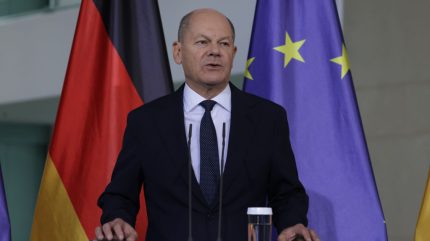
Germany’s coalition government is falling apart. German Chancellor Olaf Scholz’s firing of his Finance Minister Christian Lindner, who hailed from the opposing pro-business Free Democrats party, has set off events that are likely to lead to a snap election in 2025.
Scholz fired Lindner for breaking his trust after the finance minister publicly called for a different economic policy as internal disagreements over the country’s budget reached their limit. Lindner’s party, the Free Democrats, had been part of a coalition government with Scholz’s Social Democratic Party (SDP) and the Greens since 2021.
Three remaining ministers from the Free Democrats resigned as a result. One of them, Transport Minister Volker Wissing, backtracked on his decision and decided to stay on as minister but left his party instead.
Alexander Dobrindt, the parliamentary leader of the Christian Social Union, the sister union of the Christian Democratic Union of Germany (CDU) in the Bavaria region, said that with the economic and manufacturing hurdles the country faced, Germany “simply can’t afford to be in a chancellor coma”.
Trump wins
Dobrindt’s comments also apply to the obstacles Germany will face under a second Trump presidency.
“In addition to the domestic structural crisis, the country now faces massive foreign trade and security policy challenges for which we are not prepared,” Mortiz Schularick, president of the Kiel Institute for the World Economy, said after Donald Trump claimed victory in the US presidential election.
The US has been Germany’s second-largest trading partner after China since 2021. For the first six months of 2024, it overtook China and became Germany’s most important trading partner. According to governmental national statistics agency Destatis, 9.9% of German exports went to the US in terms of value in 2023.
This reliance on exports, given Trump’s plan to raise import taxes to at least 10% across the board, does not bode well for Germany.
“German exporters…. must expect severe losses if Trump makes good in his threat to impose basic tariffs of 20% on US imports from all trading partners,” Destatis said.
The Ifo Institute for Economic Research said Trump’s measures “would mean considerable economic damage of €33bn ($35.58bn) in Germany alone.”
In early October, Germany was one of only five countries to vote against EU tariffs on Chinese electric vehicles after intense pressure from the country’s carmakers. The German automotive industry relies on China for nearly a third of sales. After the vote passed approving the tariffs, BMW said it was a “fatal signal” for the EU car sector and Volkswagen said it was the “wrong approach”.
The German economy
Germany unexpectedly avoided a full-blown recession in the third quarter of the year. Some preliminary data showed that GDP grew by 0.2% after a 0.3% contraction in the previous quarter. The results came after the German economy minister warned that the economy was expected to contract by 0.2% this year.
The country has also been experiencing a manufacturing crisis for years following the loss of cheap Russian energy, the invasion of Ukraine, the Covid-19 pandemic and less demand from the export market in China.
With the fall of Scholz’s coalition and potential restrictions on two major export markets, Germany’s path to political and economic stability may be harder than it seemed even a few months ago.



